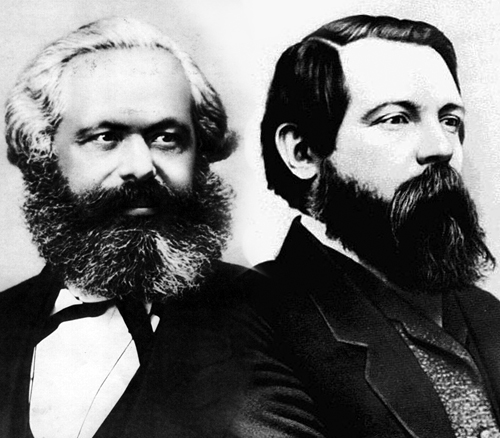I’m talking about conventional perspectives on the lumpenproletariat; early marxists clearly ran in different circles than I do.
A contemporary definition from the Communist Party of Texas:
Generally unemployable people who make no positive contribution to an economy. Sometimes described as the bottom layer of a capitalist society. May include criminal and mentally unstable people. Some activists consider them “most radical” because they are “most exploited,” but they are un-organizable and more likely to act as paid agents than to have any progressive role in class struggle.
I can just feel the classism dripping out.
The wikipedia article about the phrase basically illustrates the idea of the lumpenproletariat as having been used as a punching bag by Marx, to create a foil to the proletariat in order to glorify the latter’s revolutionary potential. From The Communist Manifesto:
The lumpenproletariat is passive decaying matter of the lowest layers of the old society, is here and there thrust into the [progressive] movement by a proletarian revolution; [however,] in accordance with its whole way of life, it is more likely to sell out to reactionary intrigues.
Anyway, I find this whole line of thinking precisely as deplorable as Marx, and Engels, and those who followed found the lumpenproletariat. Apparently Mao saw more revolutionary potential in the lumpenproletariat, believing they were at least educable.
It seems like the Black Panther Party looked toward the lumpenproletariat with some humanity, and they saw revolutionary potential in “the brother who’s pimping, the brother who’s hustling, the unemployed, the downtrodden, the brother who’s robbing banks, who’s not politically conscious,” as Bobby Seale, in-part, defined the lumpenproletariat.
This feels much more honest and humane than the classical definitions, which I guess a lot of the major communist orgs in the u.s. still run with.
Finally, I’ll just copy and paste the very short ‘criticism’ section from the wiki article as some food for thought:
Ernesto Laclau argued that Marx’s dismissal of the lumpenproletariat showed the limitations of his theory of economic determinism and argued that the group and “its possible integration into the politics of populism as an ‘absolute outside’ that threatens the coherence of ideological identifications.” Mark Cowling argues that the “concept is being used for its political impact rather than because it provides good explanations” and that its political impact is “pernicious” and an “obstacle to clear analysis.” Laura Pulido argues that there is a diversity in the lumpen population, especially in terms of consciousness.
Anyway, just one of those ‘holy shit’ moments. Usually I vibe hard with classical marxism, but they can’t all be hits. Wondering other peoples’ takes.
But don’t go telling me that my lumpen comrades are economically predestined to not be revolutionary socialists, because that analysis would run in direct contradiction to material realities ;)
Maoism is generally considered to be the newer, and more effective form of modern Marxism, precisely because it takes into account that the lumpen are nonetheless a huge force, bigger than that of the working proletariat, and therefore can and should be harnessed for its revolutionary potential. The difficulty is, of course, educating the lumpen in the first place. How many extremely poor right-wing chuds do we know who enthusiastically vote and campaign against their very own class and economic interests to “own the libs”, or to stop whatever imagined group of people or movements that threaten their perceived way of life.
Mao loved the lumpen because to him they were an ideological clean slate. The modern lumpen, particularly in the imperial core, has already been ideologically indoctrinated by reactionaries as they already hold the cultural and media hegemony. Thus, they can no longer be considered the clean slate, but one must deprogram that indoctrination. We all know how absurd it is to unlearn the cultism that pervades the modern far right, from Trumpism to QAnon, to worship of authority, hierarchy, evangelicalism, and capitalism.
No revolutionary has succeeded in such a scale of mass deprogramming in an era of mass media before. It seems such an unsurmountable hill.


